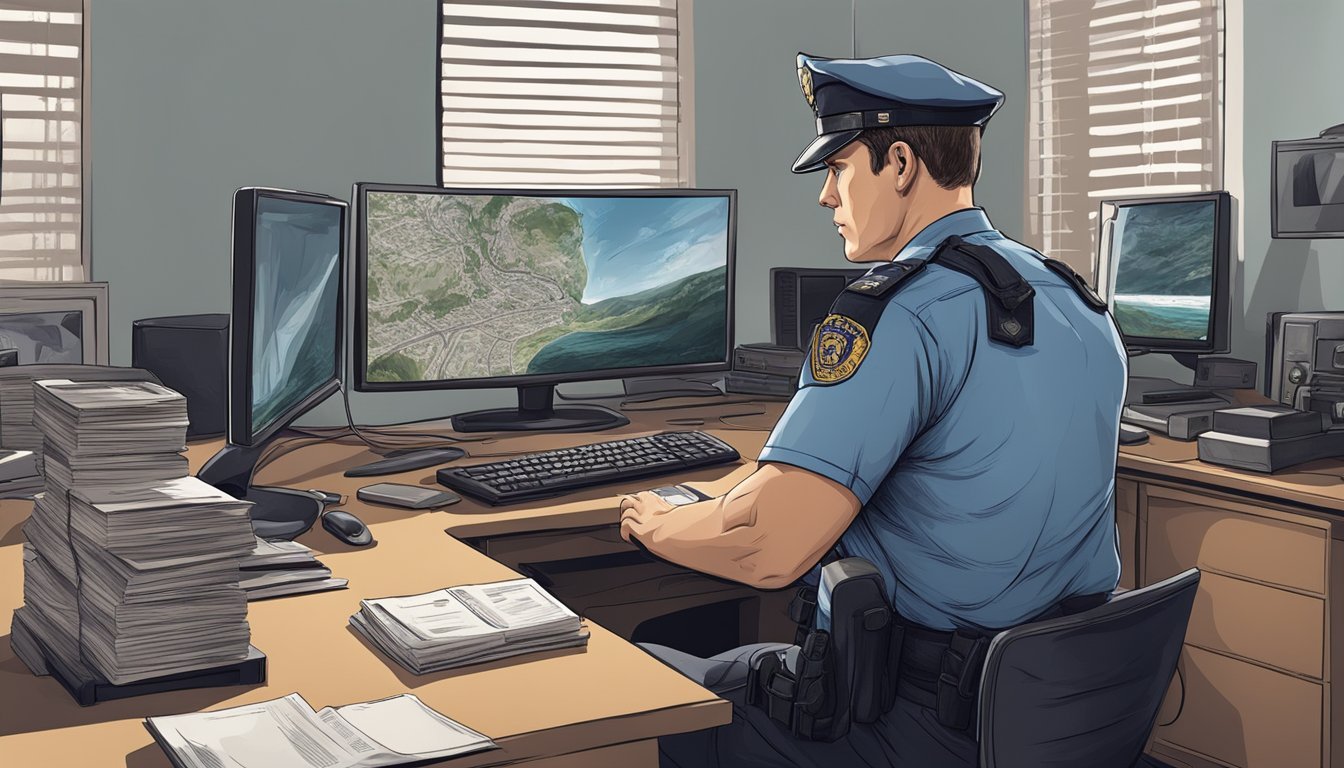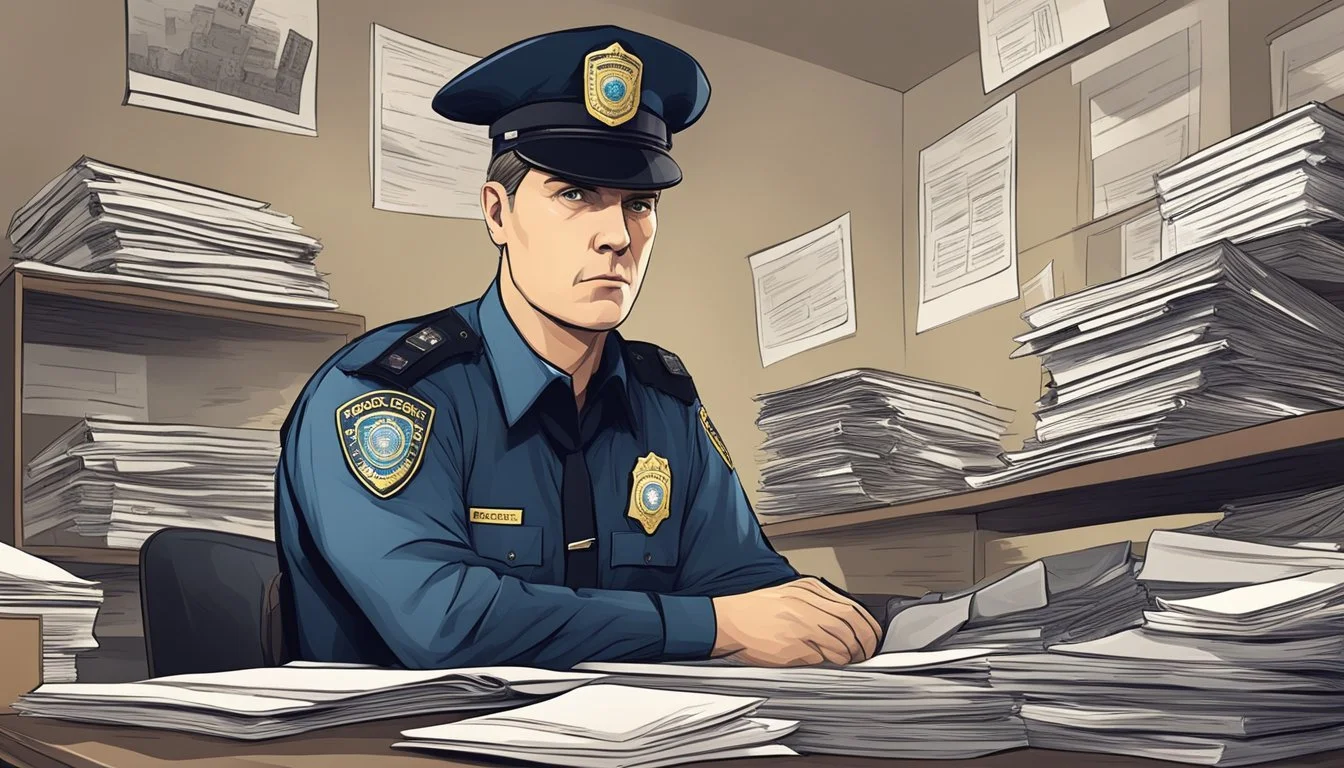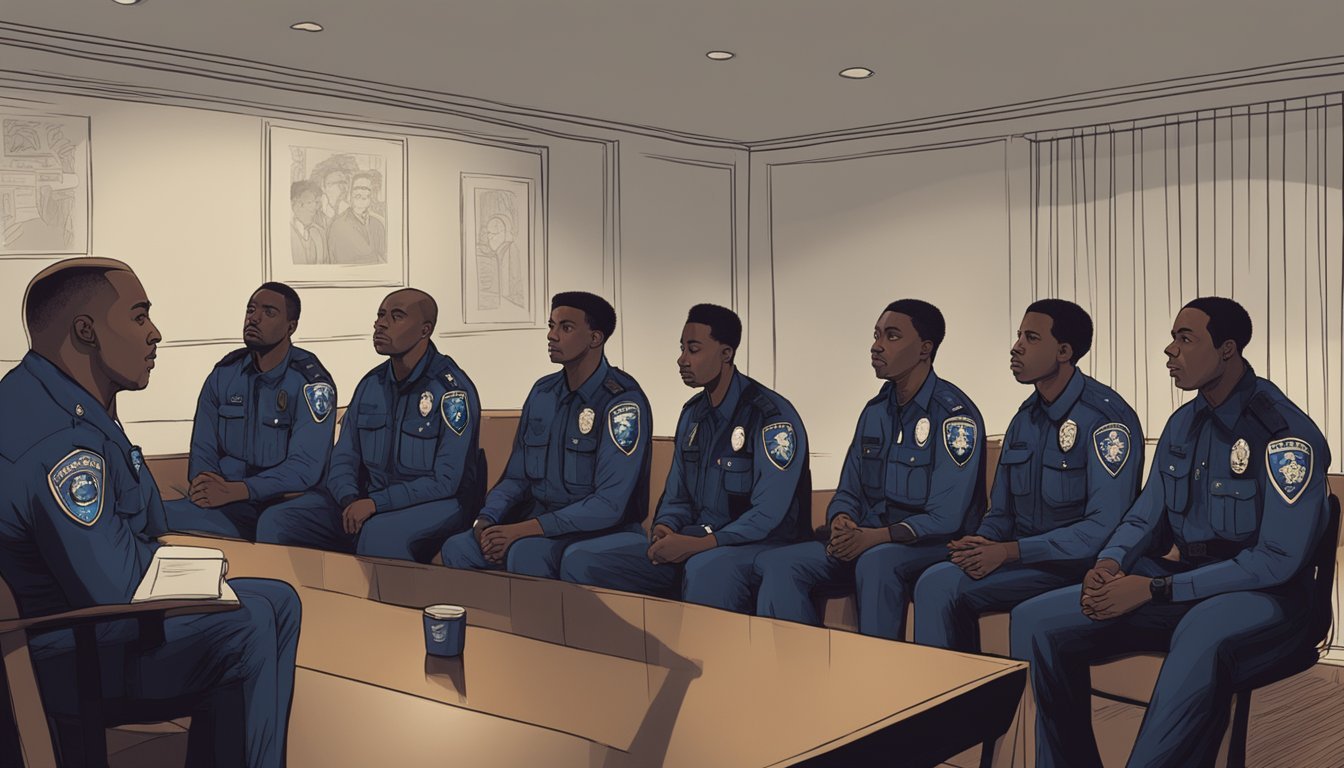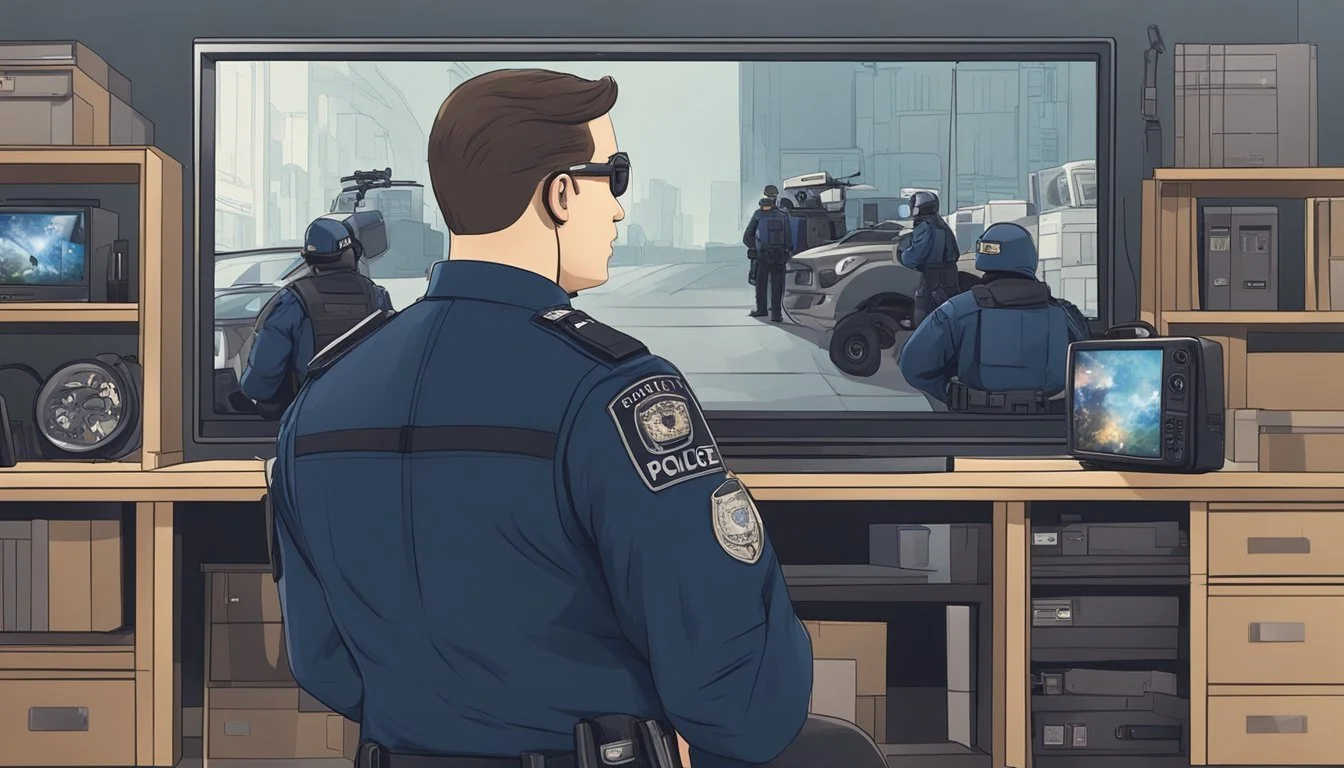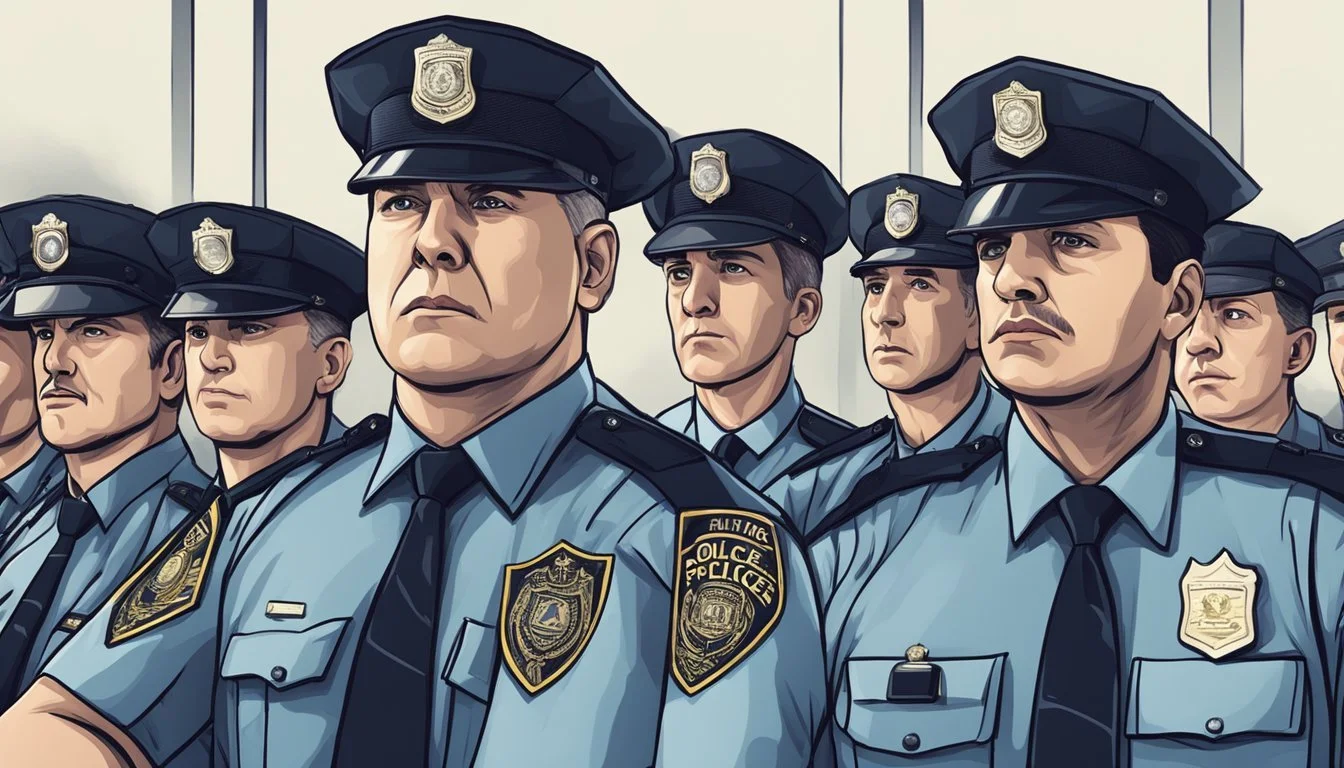3 Gripping Documentaries for Police Officers
Essential Viewing for Law Enforcement Professionals
Police documentaries offer unique insights into law enforcement challenges, triumphs, and systemic issues. These films provide viewers with a closer look at the realities faced by officers on a daily basis, as well as the complex relationships between police departments and the communities they serve.
For police officers, watching documentaries about their profession can be both enlightening and educational. These films often explore topics directly relevant to their work, from departmental policies to individual experiences of fellow officers. By examining different perspectives and real-life scenarios, documentaries can spark meaningful discussions and potentially inspire positive changes within law enforcement agencies.
1) 'The Thin Blue Line' by Errol Morris (1988)
'The Thin Blue Line' is a landmark documentary that reshaped the true crime genre. Directed by Errol Morris, the film explores the wrongful conviction of Randall Dale Adams for the murder of a Dallas police officer.
Morris employs innovative techniques, including dramatic reenactments and a haunting score by Philip Glass, to craft a compelling narrative. The documentary meticulously examines the flaws in the judicial system that led to Adams' conviction.
Through interviews with key witnesses and investigators, the film uncovers inconsistencies in the case. It raises important questions about the reliability of eyewitness testimony and the potential for misconduct in law enforcement.
'The Thin Blue Line' had a profound real-world impact. The film's investigation played a crucial role in exonerating Adams, who was released from prison shortly after its release.
For police officers, this documentary serves as a powerful reminder of the importance of thorough and ethical investigative practices. It underscores the potential consequences of rushed judgments and the value of pursuing truth in criminal cases.
More information on 'The Thin Blue Line'
2) 'Making a Murderer' by Laura Ricciardi and Moira Demos (2015)
'Making a Murderer' is a groundbreaking true crime documentary series that explores the complex case of Steven Avery. Filmmakers Laura Ricciardi and Moira Demos spent a decade collecting and editing footage for this project.
The series examines Avery's wrongful conviction for sexual assault in 1985, his exoneration after 18 years in prison, and his subsequent arrest and conviction for murder in 2007. It raises questions about the American justice system and potential misconduct by law enforcement.
'Making a Murderer' gained significant attention upon its release on Netflix in 2015. The series presents a detailed look at the investigation, trial, and aftermath of the murder case, offering viewers a chance to critically examine the legal proceedings.
The documentary sparked public debate about the fairness of the criminal justice system and the potential for wrongful convictions. It demonstrates the power of long-form investigative journalism in uncovering potential flaws in legal processes.
For police officers, 'Making a Murderer' provides valuable insights into the complexities of criminal investigations and the importance of maintaining integrity throughout legal proceedings.
More information on 'Making a Murderer'
3) 'The Central Park Five' by Ken Burns, Sarah Burns, and David McMahon (2012)
This documentary examines the infamous 1989 Central Park jogger case. It focuses on five Black and Latino teenagers who were wrongfully convicted of raping a white woman in New York City's Central Park.
The film explores the case from the perspective of the five accused, providing insight into their experiences. It covers their arrests, convictions, and the years they spent in prison before being exonerated.
Ken Burns, Sarah Burns, and David McMahon directed and produced this eye-opening documentary. It premiered at the Cannes Film Festival in 2012, garnering significant attention.
'The Central Park Five' sheds light on issues of racial bias in the criminal justice system. It presents a critical examination of how the case was handled by law enforcement and the media.
The documentary serves as a powerful tool for police officers to reflect on investigative practices and potential biases. It emphasizes the importance of thorough and fair investigations in criminal cases.
Understanding Documentary Styles
Documentary films employ various styles to present their subjects. Two common approaches are ethnographic and expository documentaries, each with distinct techniques for capturing and conveying information.
Ethnographic Documentaries
Ethnographic documentaries focus on observing and documenting cultures or social groups. Filmmakers immerse themselves in the subject's environment, often for extended periods. This approach aims to provide an authentic, unfiltered view of the subjects' lives and experiences.
The camera acts as a silent observer, capturing natural behaviors and interactions. Minimal narration or direct interviews are used, allowing viewers to draw their own conclusions. Ethnographic documentaries frequently employ handheld cameras and natural lighting to maintain authenticity.
Police-focused ethnographic documentaries might follow officers on their daily patrols or during community interactions. These films offer viewers a raw, unscripted look at law enforcement's day-to-day realities.
Expository Documentaries
Expository documentaries present information directly to the audience, often using narration or interviews to guide viewers through the subject matter. This style aims to educate and inform, providing clear explanations and analysis of complex issues.
Filmmakers use a combination of archival footage, interviews with experts, and reenactments to support their narrative. Voice-over narration is common, offering context and interpretation of the visuals.
In police-related expository documentaries, filmmakers might explore topics like departmental policies, training methods, or specific cases. These films often include interviews with officers, community members, and legal experts to provide multiple perspectives on the subject.
Expository documentaries frequently use graphics, charts, and other visual aids to help illustrate key points and data. This style allows for a more structured and analytical approach to exploring law enforcement topics.
Impact of Documentaries on Law Enforcement
Police documentaries have significantly influenced law enforcement practices and public perceptions. They have sparked important conversations about policing methods and community relationships.
Enhanced Training Methods
Documentaries exposing police misconduct have led to improved training programs. Many departments now incorporate documentary footage into their training curricula. These real-world examples help officers recognize and avoid problematic behaviors.
Some agencies use documentaries to teach de-escalation techniques and cultural sensitivity. This approach gives officers a more nuanced understanding of complex situations they may encounter.
Documentaries highlighting successful community policing initiatives have inspired departments to adopt similar strategies. Officers learn from these positive examples to build trust and rapport with residents.
Perspective on Community Relations
Police documentaries have increased awareness of tensions between law enforcement and certain communities. This has prompted many departments to reevaluate their approach to community engagement.
Some agencies have implemented town hall meetings and ride-along programs in response to issues raised in documentaries. These initiatives aim to foster dialogue and mutual understanding between police and residents.
Documentaries showcasing positive police-community interactions have provided valuable models for improving relations. Departments study these examples to develop more effective outreach strategies and build stronger community partnerships.

